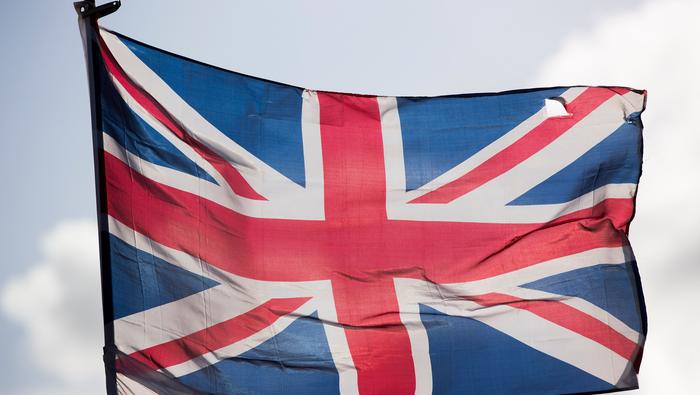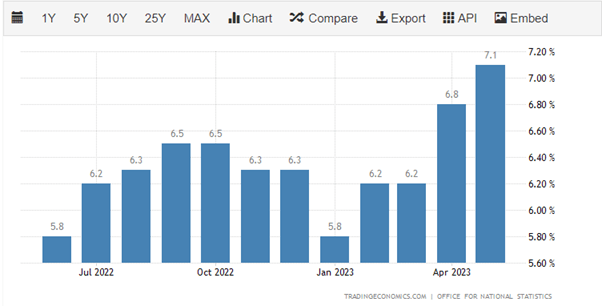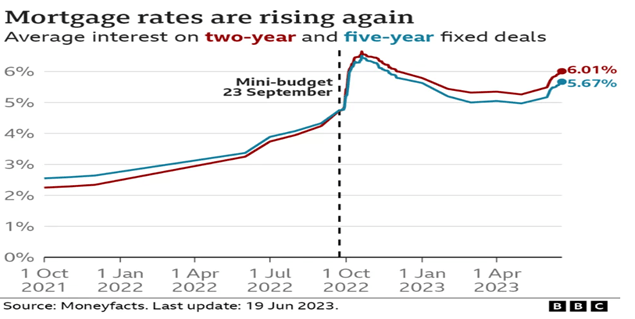
The British Pound Q3 Fundamental Outlook
The British Pound has been driven higher through Q2 by expectations that the Bank of England would increase interest rates in an effort to quell stubbornly high inflation. According to previous guidance by the UK central bank, inflation would start to fall, and potentially sharply, during Q2 and that rate rises may be tempered going into the second half of the year. Price pressures were seen dropping ‘significantly’ due to expectations of falling energy prices and the extension of the Energy Price Guarantee (EPG). While energy prices have fallen, food prices remain obstinately high, while the UK jobs market remains robust with unemployment close to multi-decade lows.
UK inflation did fall in the second quarter of the year but not by as much as expected. Headline inflation fell from 10.1% in March to 8.7% in April but then remained at that level in May. Even worse for BoE governor Bailey, core inflation rose jumped from 6.2% in March to 6.8% in April and then rose again to 7.1% in May, the highest level since March 1992.
UK Core Inflation

With inflation remaining persistently high, the Bank of England will have to keep raising rates until they bite. The UK Bank Rate has just been raised from 4.5% to 5% by the BoE, its highest level in 15 years. And looking at market rate expectations for the months ahead, UK borrowing costs could rise by another 100 basis points by the end of the year.
Interest Rate Probability Table

Source: Refinitiv, Prepared by Nicholas Cawley
These elevated borrowing costs are being felt in the UK mortgage sector as building societies and banks find the cost of raising money in money markets prohibitive. Two-year fixed rates have risen to over 5.6% from around 2.6% in October 2021, while five-year mortgage rates are testing 6% compared to less than 2.5% over the same timeframe. With mortgage costs expected to soar for people coming off fixed-rate mortgages over the coming months, consumer spending will be hit hard. And that spells trouble for the BoE in the months ahead.

The UK economy expanded by 0.1% in Q1 this year and in Q4 2022, pushing away fears of a technical recession. However, this tepid growth will come under pressure in the months ahead with consumer set to keep their hands firmly in their pockets as household costs continue to rise. The UK central bank may soon have to choose between hiking rates ever higher to stifle inflation or by leaving them at a level where the UK economy can continue to grow. The messaging by the Bank of England, already under question, will need to be clear and believable. Hoping that inflation will fall ‘significantly’ is not an option.

